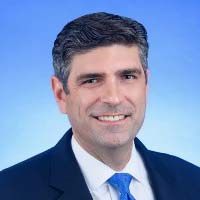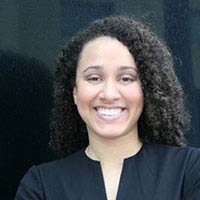Staff Leadership

Ignacio J. Vázquez, Jr. began serving as Executive Director of the Miami-Dade County Commission on Ethics and Public Trust on September 3, 2024. He is honored to lead the collaborative efforts of the Ethics Commission’s lawyers, investigators, community outreach specialists, and support staff in this capacity. Mr. Vázquez serves as the agency’s point of contact for elected and appointed officials and oversees the Commission’s multi-agency coordination, ethical compliance initiatives, and community engagement.
Before joining the Ethics Commission, Mr. Vázquez served as a civil and criminal litigator, beginning his legal practice as an associate attorney specializing in catastrophic injury, wrongful death, and maritime law. Mr. Vázquez later served as a Miami-Dade Assistant State Attorney assigned to the Office’s Special Prosecutions service area handling counter gang and racketeering initiatives, and ultimately serving in the Gang Prosecution Unit as a cross-designated Special Assistant United States Attorney. In this role, Mr. Vazquez participated in the United States Department of Justice’s Project Safe Neighborhoods initiative, coordinating State and Federal firearm and gang-related prosecutions. After his state service, Mr. Vazquez joined the United States Attorney’s Office for the Southern District of Florida as an Assistant United States Attorney. Mr. Vázquez has served as the lead task force and trial attorney for multiple Organized Crime and Drug Enforcement Task Forces addressing violent and corrupt criminal enterprises and led Department of Justice authorized racketeering investigations. Mr. Vázquez prosecuted several criminal groups engaged in racketeering, corruption, homicides, fraud, and money laundering. Mr. Vázquez has also served as the District’s Special Prosecutions Section’s Deputy Chief, Section Chief, Gang Coordinator, and Violent Crime Coordinator.
Mr. Vázquez received a Bachelor of Arts in English from Florida State University, his Juris Doctor from St. Thomas University, magna cum laude, a Master of Laws in Ocean and Coastal Law from the University of Miami, and a Graduate Certificate in Death Investigation from the University of Florida. Mr. Vázquez has continued his education by participating in programs such as the American University Washington College of Law’s Summer Anti-Corruption Law program. Mr. Vázquez has received awards of note, including a commendation from the City of Miami, the United States Attorney’s Office’s Timothy Evans Award, the Miami-Dade County Chiefs of Police Federal Prosecutor of the Year Award, and the Executive Office of the United States Attorneys Director’s Award for Superior Performance as an Assistant United States Attorney.
Mr. Vázquez is admitted to practice law before State of Florida Courts and the United States District Court for the Southern District of Florida. He is also a member of the Florida Bar Criminal Law Section, the Florida League of Prosecutors, the Florida Gang Investigators Association, the International Homicide Investigators Association, and the International Association of Prosecutors. Mr. Vázquez has also previously served as an instructor for the Miami-Dade Public Safety Institute in organized crime, gangs, and conspiracy investigations.

As General Counsel, Loressa Felix oversees and manages the Legal Unit. Ms. Felix has been with the Commission On Ethics (COE) since 2020. Ms. Felix advises the COE Commissioners on all matters relative to the COE board, including ordinances, resolutions, rules and procedures.
As head of the Legal Unit, she works with three experienced Staff Attorneys. Among the Legal Unit’s responsibilities, COE attorneys review, research and draft formal and informal legal opinions; provide ethics guidance to public officials, employees and the public at large on the applicability of ordinances within the COE’s jurisdiction; conduct training and presentations on subject matters of interest to the COE.
Ms. Felix also conducts initial review of third-party ethics complaints for legal sufficiency and presents her recommendations to the COE. She prepares COE resolutions, reviews all public records requests and provides consultation and assistance to the Executive Director, the Advocate and legal counsel to the County and its 34 municipalities.
Ms. Felix understands the importance of public trust in local governance and is deeply committed to ensuring and strengthening that relationship. It is essential that Miami-Dade citizens feel that local government is transparent, ethical, and fair. Our work ensures that Miami-Dade citizens can rely on that promise and know that we will safeguard their trust.
Ms. Felix is a former Miami-Dade County Assistant State Attorney of seven years where she was a part of the Career Criminal Robbery Unit, a Felony Attorney, and an Assistant Chief of County Court. Ms. Felix also has several years of civil litigation experience in both private practice and with Legal Services of Greater Miami, Inc.
Originally from West Virginia, Ms. Felix has been a resident of the South Florida for over 20 years. Ms. Felix received a Bachelor of Arts in International Studies and Political Science from the University of Miami and a Juris Doctor from Florida International University, College of Law. Ms. Felix currently holds leadership positions with the Florida Bar, Eleventh Judicial Circuit Grievance Committee, and the Miami-Dade County League of Women Voters. She is a member of the Florida Association of Women Lawyers, Gwen S. Cherry Black Women Lawyers Association, and the National Black Prosecutors Association.

Radia Turay is the Advocate at the Miami-Dade Commission on Ethics and Public Trust. She is not only the first individual of African descent to be appointed to this role but is also the first woman appointee in the agency’s two-decade plus history. As Advocate in the Ethics Commission, she serves as the voice of the residents of Miami-Dade County prosecuting cases against County and municipal elected officials, board members, employees and lobbyists who violate County and municipal ethics laws.
Prior to her appointment, Ms. Turay spent the last fifteen years working as a trial attorney in South Florida. She served as an assistant state attorney and a division chief of the Juvenile Unit at the Miami-Dade State Attorney’s Office. Ms. Turay also worked as a civil litigator, handling catastrophic injury cases with multi-million-dollar exposure. For the most recent five years, she served as a staff attorney at the Ethics Commission providing ethics opinions, assisting with community outreach, overseeing investigations and prosecuting enforcement cases.
Ms. Turay completed her undergraduate work at Spelman College in Atlanta and earned her Juris Doctorate at Syracuse University, where she also obtained a Master’s degree in International Relations from the Maxwell School of Citizenship and Public Affairs.
In her current position, Ms. Turay leads the Ethics Commission’s Enforcement Unit, which is tasked with conducting investigations of possible violations of County and municipal ethics ordinances. She is further responsible for filing complaints, making probable cause recommendations, and litigating cases before the Ethics Commission.
